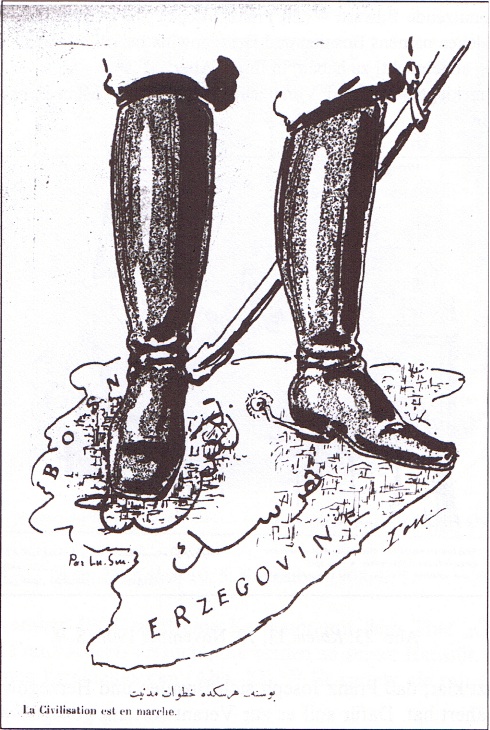The Bosnian Crisis of 1908 - 1909
The Bosnian Crisis of 1908-09 added to the complex mix of events that led to the outbreak of World War One. The period is often referred to as the “Balkan Powder Keg” - when this turmoil became entangled with imperialist ambitions and alliances it ignited conflict in Europe.
The Balkan region refers to a part of southeastern Europe and includes the countries of Albania, Bulgaria, Serbia and Yugoslavia. In total, the Bosnian Crisis involved nine countries.
The Bosnian Crisis was sparked by anger over the annexation of the Balkan regions of Bosnia and Herzegovina by Austria-Hungary.
In 1878, Bosnia and Herzegovina were officially a part of the Turkish Ottoman Empire, but Austria-Hungary occupied the territory with the agreement of the rest of Europe (Treaty of Berlin).

However, on 6 October 1908, Austria-Hungary announced its decision to annex Bosnia and Herzegovina. The Ottoman Empire decried the move and Britain, Russia, Italy, Montenegro, Serbia, Germany and France saw this as a violation of the Treaty of Berlin and became entwined in the crisis.
Following Austria-Hungary’s announcement, Bulgaria declared its independence from the Ottoman Empire.
The Turks, who had ruled Bulgaria, Bosnia and Herzegovina for centuries, were unsurprisingly displeased with the annexation and declaration of independence.
The Ottoman Empire’s military and domestic power had declined in the past decades. Thus, the Turks could not do much more than demand a financial settlement in exchange for Austria’s annexation of Bosnia and Herzegovina.
The annexation caused international tension, particularly in Russia and Serbia. A strong popular opposition to the annexation developed in Russia. Additionally, Serbia was angered by the annexation of Bosnia and Herzegovina, which she had hoped to unite into one Serbian nation. She demanded Austria to give a portion of Bosnia and Herzegovina to Serbia, and Izvolsky (the Russian Foreign Minister), pressured by anti-Austrian opinion in Russia, had no choice but to support the Serbian claims.
Austria reacted by threatening to invade Serbia. With Germany as an Austrian ally, Russia could not risk a war for Serbia’s sake. In March 1909 Izvolsky notified Germany that Russia accepted Austria’s annexation.
Although a war was avoided, the Bosnian Crisis embittered relations between Serbia and Austria-Hungary. It contributed to the underlying tensions that were ignited when Franz Ferdinand was assassinated at Sarajevo.
See also: Balance of Power in 1914
MLA Citation/Reference
"The Bosnian Crisis of 1908 - 1909". HistoryLearning.com. 2026. Web.
